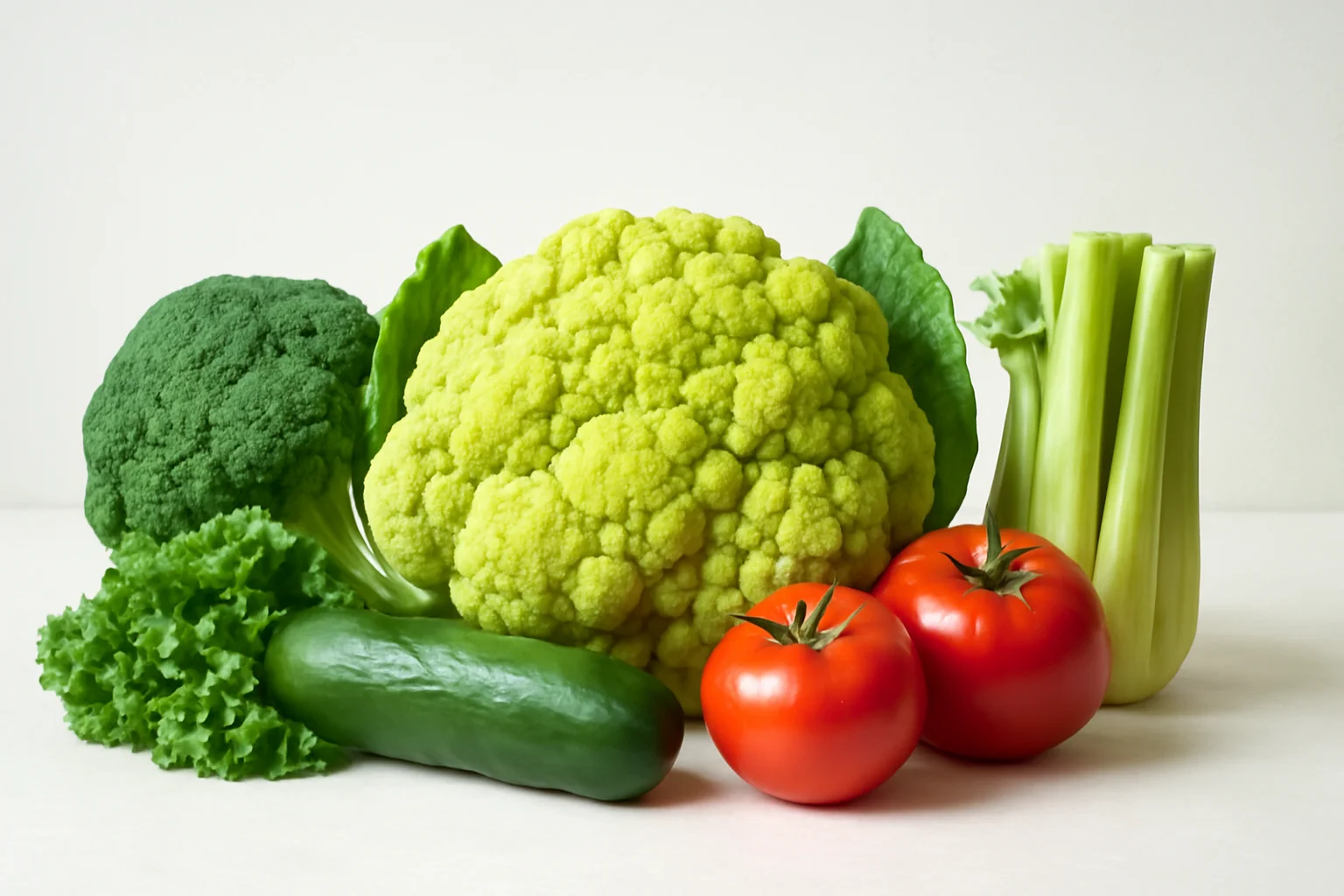
The Beneficial Effects of Cauliflower on Our Health and Nutrition
Cauliflower is a vegetable that is often underestimated, yet it is extremely rich in nutrients and vitamins. In recent years, it has gained increasing popularity, especially in vegan and health-conscious diets. Cauliflower is versatile, making it not only a base for delicious dishes but also possessing numerous health benefits. People often do not realize how much this white vegetable can contribute to maintaining their health and how it can be incorporated into daily diets in various ways.
The Nutritional Content and Health Benefits of Cauliflower
Cauliflower’s nutritional content is remarkable, as it contains numerous vitamins and minerals while being low in calories. 100 grams of cauliflower contains only about 25 calories, making it an ideal dietary choice for those looking to lose weight. Cauliflower is rich in vitamin C, which plays an important role in the immune system and, due to its antioxidant properties, helps protect cells from free radicals.
Additionally, vitamin K is found in significant amounts in cauliflower, contributing to bone health and blood clotting. The folate content in cauliflower is also noteworthy, as it is essential for cell division and DNA synthesis. The fiber content aids in bowel function, reduces the risk of constipation, and contributes to a feeling of fullness, thereby decreasing the likelihood of overeating.
The phytonutrients found in cauliflower, such as sulforaphane, also play an important role in health preservation. These compounds have antioxidant effects and may help reduce inflammation, as well as lower the risk of chronic diseases such as cardiovascular diseases and cancer. Therefore, consuming cauliflower not only provides a tasty treat but also comes with numerous health benefits.
The Role of Cauliflower in Weight Loss
Cauliflower is an ideal choice for those on a diet, as its low calorie content allows for easy incorporation into dietary plans. Its popularity also increases among low-carbohydrate diets, as cauliflower can be an excellent alternative to higher carbohydrate foods like potatoes or rice. Cauliflower puree or cauliflower rice is a great way to reduce carbohydrate intake while enjoying nutrient-rich meals.
The fiber content in cauliflower helps maintain a feeling of fullness, thus reducing cravings for snacks. The fibers swell in water during digestion, promoting bowel function and contributing to a sense of satiety. Additionally, the nutrients found in cauliflower, such as vitamin C and folate, are also important for fat burning and optimal metabolism.
Cauliflower’s versatility allows it to be used in various dishes, preventing diet boredom. It can be roasted, steamed, boiled, or even eaten raw in salads. Before cooking, it is advisable to wash the vegetable thoroughly to remove any dirt. Various spices, such as garlic, pepper, or olive oil, can be used to enhance the flavor of our dishes.
Cauliflower as a Source of Antioxidants
Cauliflower is rich in antioxidants, which play a crucial role in protecting cells from damage caused by free radicals. Free radicals are unstable molecules that can cause oxidative stress in the body, contributing to the development of chronic diseases such as cancer and heart disease. Antioxidants found in cauliflower, such as vitamin C and sulforaphane, help protect cells and support the immune system.
Sulforaphane is particularly promising, as it is found in cruciferous vegetables, including cauliflower. Research suggests that sulforaphane can inhibit the growth of cancer cells and may also help reduce inflammation. Furthermore, other antioxidants in cauliflower, such as carotenoids and flavonoids, also contribute to cell protection and maintaining a healthy gut flora.
The antioxidants in cauliflower not only play a role in cancer prevention but also in reducing the risk of cardiovascular diseases. The high vitamin K content in cauliflower contributes to maintaining heart health by helping regulate blood clotting and preserving bone health.
Regular consumption of cauliflower is therefore not only a tasty solution in nutrition but can also contribute to cell protection and the prevention of chronic diseases.
**Note:** This article does not constitute medical advice. In case of health issues, please always consult your doctor.

